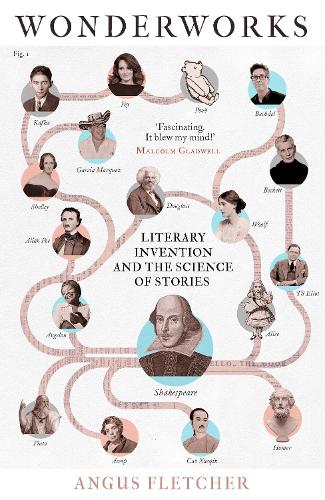
Wonderworks: Literary invention and the science of stories
(Hardback)
Available Formats
Publishing Details
Wonderworks: Literary invention and the science of stories
By (Author) Angus Fletcher
Swift Press
Swift Press
28th September 2021
2nd September 2021
United Kingdom
Classifications
General
Non Fiction
809
Physical Properties
Hardback
480
Width 153mm, Height 234mm
Description
Literature is a technology like any other. And the writers we revere - fromHomer to Shakespeare, Austen to Ferrante - each made a unique technicalbreakthrough that can be viewed as both a narrative and neuroscientific advancement.But literature's great invention was to address problems we couldnot solve: not how to start a fire or build a boat, but how to live and love; howto maintain courage in the face of death; how to account for the fact that weexist at all.
Based on Angus Fletcher's own research, Wonderworks tells the story of thegreatest literary inventions through the ages, from ancient Mesopotamia tomodern-day America. It draws on cutting-edge neuroscience to demonstratethat the inventions really work: they enrich our lives with joy, hope, courageand energy, and they help our brains heal from grief, loneliness and eventrauma.
From ancient Chinese lyrics to nursery rhymes and fairy tales, from slave narrativesto contemporary TV shows, Wonderworks walks us through theevolution of literature's crucial blueprints, and offers us a new understandingof its power.
Reviews
'Find one polymath. Take a profound knowledge of world literature. Add a deep knowledge of neuroscience. Stir in an enchanting prose style. This is Angus Fletcher's Wonderworks. A marvellous treat' - Martin Seligman, New York Times bestselling author of Authentic Happiness
'Fletcher endorses storytelling as a foundational technology but he goes beyond that to illustrate its therapeutic value and centrality to cultural invention' - Antonio Damasio, Professor of Neuroscience and Director of the Brain and Creativity Institute, University of Southern California
Author Bio
Originally from the UK, Angus Fletcher is a professor of story science at Ohio State's Project Narrative, the world's leading academic think-tank for the study of stories. He has dual degrees in neuroscience and literature, received his PhD from Yale, taught Shakespeare at Stanford, and has published two books and dozens of peer-reviewed academic articles on the scientific workings of novels, poetry, film and theatre. His research has been supported by the National Science Foundation, the Mellon Foundation and the Academy of Motion Picture Arts and Sciences. He has done story-consulting for projects for Sony, Disney, the BBC and more.
